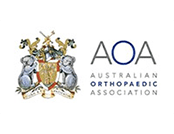Knee Arthritis
Overview
There are three main types of arthritis, Inflammatory Arthritis, Osteoarthritis and Post-Traumatic Arthritis.
Any condition that damages the cartilage covering the bony surfaces of the knee joint, namely the end of the femur, the top of the tibia or the back of the patella, will cause derangement and breakdown of the cartilage. This is Arthritis. If the cartilage is damaged, it cannot provide the normal smooth motion and withstand the forces placed upon it with day to day activities and sports. This leads to pain and disability.
Detailed Description
Inflammatory arthritis is a condition that usually affects multiple joints. There are several types including Rheumatoid Arthritis and Psoriatic Arthritis. The inflammation created within the joint also affects the soft tissues and can cause swelling, instability and stiffness as well as chronic pain. If you have inflammatory arthritis, you will probably be being looked after by a Rheumatologist already. Large joint disease such as hip and knee arthritis tend to occur later in the course of inflammatory arthritis and is a combination of direct damage to the cartilage from the inflammatory process, and also from the instability caused when the soft tissues become affected. This allows unnatural movement of the joint, overloads the cartilage and causes it to degrade.
Osteoarthritis or OA, is a degenerative (wear and tear) condition affecting the smooth cartilage that covers the surface of a joint. Unlike inflammatory arthritis, osteoarthritis usually affects one joint, or rarely two at a time. It can affect the knee joint. The knee constitutes the bottom of the femur and the top of the tibia and the joint between the patella and the femur. The cartilage on these bones is called Articular cartilage (Articular = of the joint). OA usually comes on in older patients as the cartilage wears out over time, our joints aren’t really designed to last as long as we are now expecting them to. Sometimes osteoarthritis can occur early in patients with abnormal mechanics of the knee, instability or following trauma. Other factors include obesity, avascular necrosis (loss of the blood supply to the bones), or may be the long term result of a childhood knee condition. Anything that damages the cartilage can predispose it to osteoarthritis.
Post-Traumatic Arthritis occurs following injury to the joint, namely trauma. A fracture through the joint surface causes direct damage to the cartilage which will then degrade, but can also cause irregularities to the joint surface, such as steps or gaps. When this occurs, the forces at the irregular point become very high, and overcome the ability of the cartilage to withstand them. The cartilage then begins to degrade or break down causing arthritis. This can occur very quickly following an injury.
Treatment of Knee Arthritis. Do I Need a Knee Replacement?
OsteoArthritis. In the early stages of OA, the knee joint can become inflamed. As a result, the knee becomes painful, tender, may catch or become stiff. Mobility becomes increasingly difficult and painful.
This early OA can be managed with simple measures. These are called ‘Non-Surgical’ treatments.
Post-Traumatic Arthritis Prevention is better than cure! If you are unlucky enough to sustain a fracture involving your knee, then it is important to reduce the joint surface to a near perfect position. This will usually involve complex surgery which is performed by orthopaedic surgeons trained specifically in this area and Dr. Thornton-Bott has training and experience in managing these types of fractures.
If despite correct fixation of the joint, you develop arthritis in your knee, then Dr. Thornton-Bott will treat you as if you have osteoarthritis with both non-surgical and surgical methods as described above. Sometimes the arthritis will require a knee replacement which can be complicated by the earlier surgery. Dr. Thornton-Bott has the expertise to perform such surgery.













